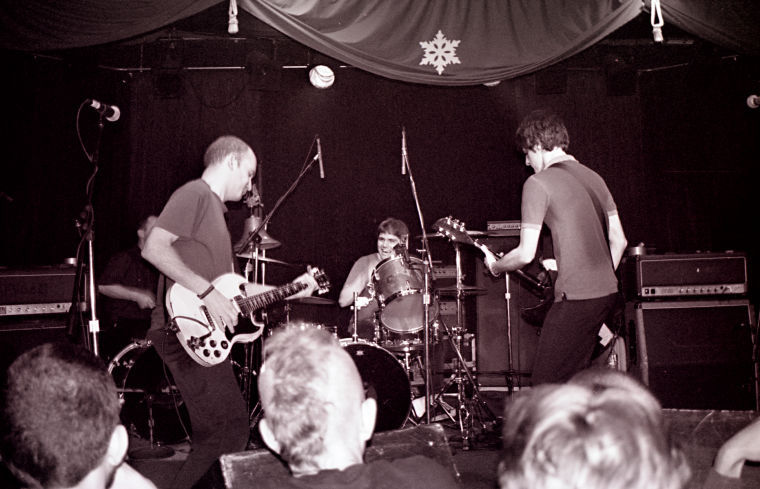Former Fugazi drummer reflects on life in the music scene
September 4, 2013
It’s one thing to love being a renowned musician for the fame and accolades. It is quite another to play music for the sheer love of collaborating with others to produce meaningful music for its own sake.
It’s safe to go ahead and put Brendan Canty, former drummer of Fugazi, in the latter category.
Despite playing a weighty role in music history — Fugazi is seldom far from the top of the list of the most influential groups in punk history — Canty maintains that the band never lost its connection to its music and audience. “It never felt like an out-of-body experience. It never felt like we had arrived anywhere differently than where we began,” he said, speaking about the popularity that Fugazi garnered over the years.
“[We] never lost that sense of family along the way.”
Canty is both humble and sentimental about his time as a part of one of the most influential bands of ’90s, often chuckling at the absurdity of his journey.
“Instead of going to college and getting into careers, we just ended up being in this ‘submarine’ for 18 years, and going all over the world and making records,” he said with a laugh. “[Fugazi] went through four or five cycles of fans and audiences.”
Though he is certainly best known for his years drumming in Fugazi, Canty first showed off his musical chops as a part of the Washington, D.C.-based Rites of Spring. The band originated just as the hardcore scene of the early ’80s was beginning to disappear, and many bands were wondering what their next moves were. “I think a lot of people after hardcore tried to find ways to go. Some people went metal. In Rites of Spring, we just went towards writing songs,” Canty said in jest.
This desire to write songs that surpassed the paradigms of hardcore continued with Fugazi. When Canty started playing with the members that would make up the band, the idea was never to fit a certain mold, nor was it to emulate other bands around them. “Everything was kind of lo-fi, and it grew organically over the years,” he said. From Canty’s perspective, musicians should “ultimately want to destroy genres,” and the goal should be to “try to make something new — always something new.”
And that is exactly what Fugazi did. Blending a multitude of different elements — Canty even claims that pop music played a big role in many of their songs — Fugazi was able to blaze the path for the post-hardcore genre, and inevitably influence a lot of alternative rock.
“Most of my life is what I would consider post-hardcore,” he said. “There was a brief period of hardcore and then it was very, very post-hardcore.”
The band rode that wave for quite some time, but they never really changed the formula — even as the music scene did around them. “The touring and the writing songs and the way we behaved were always the same,” he said.
What is perhaps most surprising about Fugazi is that they remained amiable, even after going on indefinite hiatus in 2003. “I don’t think we ever called it off, necessarily,” he said. “We just stopped playing.” With band members starting families and lives moving in different directions, it suddenly became a situation in which they could no longer play together full time.
But once all of his kids were in school, Canty could no longer fight the urge to get back on the road. His new band, Deathfix, has released an EP and is currently touring in support of it. “If I was complaining about what I am doing right now — which is driving 13 hours to Rock Island, Ill., from D.C. in one day — then I shouldn’t being doing any of this,” he said. “You get in a van and you drive around, and you either enjoy that process or you don’t.”
Clearly, Canty has enjoyed where his career has taken him, and it is his longevity in the business of making music that he holds most dear. Being a mainstay in the music scene generates respect and admiration from acts he has traveled and played with.
“You are the one who stays on, and you meet some wonderful people along the way.”
Friday, September 6
7 p.m.
Mr. Smalls Theatre
400 Lincoln Ave., Millvale



